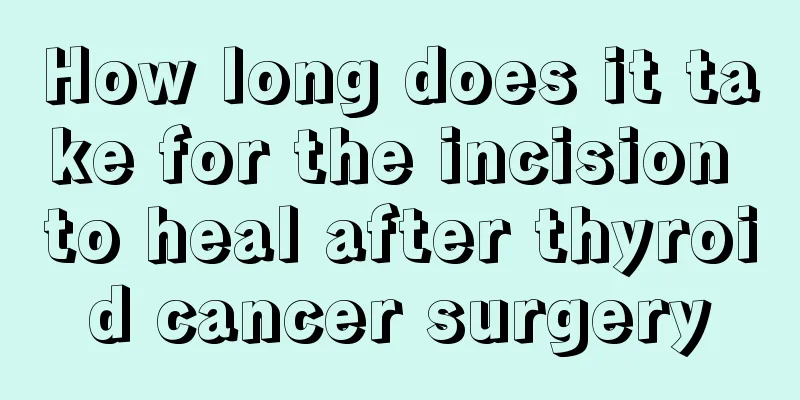Can kidney stone pain relief injections effectively relieve pain?

|
After kidney stones enter the upper urethra, they will cause severe pain in the lower back. After entering the lower urethra, they will cause severe pain in the abdomen. When kidney stones cause severe pain, you can receive pain-relieving injections, but this is only a temporary symptomatic treatment. If you want a complete cure, the more effective way is to use surgery to expel the stones. The treatment options provided by the hospital vary depending on the size of the stone and where it is located. Depending on the size of the kidney stones, renal function and the condition of hydronephrosis, you can choose to use drugs to remove the stones, extracorporeal shock wave lithotripsy, or percutaneous nephrolithotomy. Medical lithotripsy is suitable for stones smaller than 8 mm, and extracorporeal shock wave lithotripsy is suitable for stones smaller than 20 mm in size and in patients without hydronephrosis and with good renal function. If the patient has multiple kidney stones or complex, irregular kidney stones, percutaneous nephrolithotomy is the most appropriate method. Treatments for kidney stones vary according to location Many patients with stones initially think that medication can relieve pain and drinking more water to expel the stones will solve the problem. Little do people know that the treatment of stones is very particular. Different sizes of stones have different treatment methods. Only patients with stones who are "suitable" can get treatment. Kidney stones: complex stones require surgery Depending on the size of the kidney stones, renal function and the condition of hydronephrosis, you can choose to use drugs to remove the stones, extracorporeal shock wave lithotripsy, or percutaneous nephrolithotomy. Medical lithotripsy is suitable for stones smaller than 8 mm, and extracorporeal shock wave lithotripsy is suitable for stones smaller than 20 mm in size and in patients without hydronephrosis and with good renal function. If the patient has multiple kidney stones or complex, irregular kidney stones, percutaneous nephrolithotomy is the most suitable treatment. Treatments for kidney stones vary according to location Ureteral stones: Remove as soon as you find them Once a stone grows in the ureter, it will immediately block the ureter, which can easily lead to suppurative changes in the kidneys and serious damage to renal function. Therefore, ureteral stones, no matter how small, must be treated immediately. For upper ureteral stones, extracorporeal shock wave lithotripsy or retroperitoneoscopic ureterolithotomy can be used depending on the condition of hydronephrosis. For stones in the lower ureter, extracorporeal shock wave lithotripsy or transurethral ureteroscopy can be used. Bladder stones: lithotripsy and prostate enlargement removal For elderly patients, it is not enough to simply treat bladder stones, but the cause should be targeted and the enlarged prostate should be treated at the same time. Transurethral resection of the prostate plus bladder lithotripsy is usually used. If only bladder stones are treated, it is only a temporary solution and the patient will soon have a recurrence of bladder stones. |
<<: Can celery and tomatoes be eaten together
>>: Introduction to tooth enamel restoration
Recommend
Clinical manifestations of lung cancer metastasis
Lung cancer is prone to distant metastasis or loc...
How much does it cost to treat melanoma
How much does it cost to treat melanoma? This is ...
How to treat chloasma
Chloasma is a common pigmentation. The main cause...
How to use the meridian tapping stick
Nowadays, when everyone pays attention to physica...
Which muscles are most likely to be affected by cervical spondylosis
Muscles are the driving force of cervical spine m...
What causes premature graying of hair?
Some of our friends have gray hair when they are ...
What should I pay attention to after fire therapy
Among the methods of regulating the body in tradi...
What are the chances of curing fibroids?
Many patients who have suffered from fibroids kno...
Prevention of lung cancer should start with quitting smoking
What is the cause of lung cancer? Why are more an...
How long after a meal should I drink water?
People nowadays should pay great attention to the...
What are the symptoms of babies with fibroids
What are the symptoms of babies with fibroids? Ma...
What foods should not be eaten to prevent liver cancer? Don't eat these snacks to prevent liver cancer
In April this year, a 5-year-old girl died of liv...
What are the health massage methods for prostate cancer
Prostate cancer is a serious malignant tumor that...
There are vertical lines on the nail of the right thumb
We all know that fingernails can indirectly refle...
Can I eat vinegar if it has sediment?
Liquid objects will have sediment after being lef...









